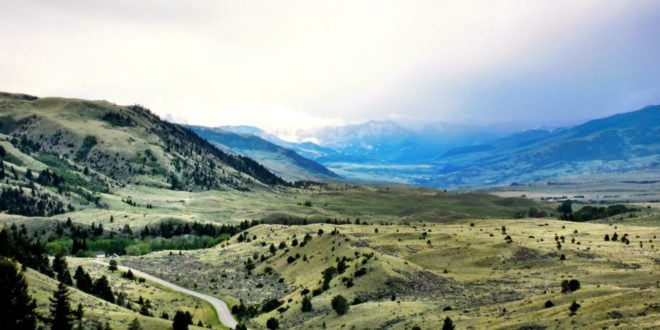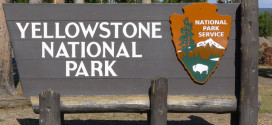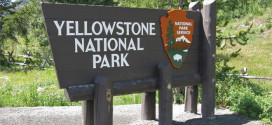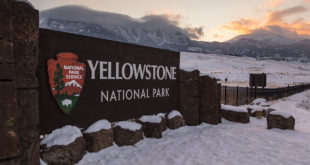The Yellowstone Gateway Protection Act will not be included in the 2018 omnibus spending bill—for different reasons, according to Montana’s congressional delegation.
This comes despite the idea garnering support from both of Montana’s Senators Jon Tester (D) and Steve Daines (R) and the state’s at-large congressional representative Greg Pianoforte (R).
Indeed, both Tester and Gianforte proposed legislation in the Senate and House, respectively, signaling bipartisan support for the measure.
The Yellowstone Gateway Protection Act would permanently remove 30,000 acres of land in the Paradise Valley from mining consideration. Currently, the area is under withdrawal by the U.S. Department of the Interior through 2018.
Currently, a pair of gold mining companies have proposed mining in the Paradise Valley outside Yellowstone National Park. Environmental and conservation groups fear the projects will damage Yellowstone’s watershed and ecosystem with waste runoff. Business orgs like the Yellowstone Gateway Business Coalition (YGBC) oppose the mines out of fear that they will drive away tourists who come to Yellowstone for the scenery and recreation opportunities.
Of the two projects, only one, Lucky Minerals Inc., is slated to start exploratory drilling, which residents and opponents fear is a prelude to larger operations.
The YGBC has lobbied for the legislation to be included in “must-pass” bills like the omnibus, which will boost its chances of passage.
According to the Missoula Current, Tester blamed Daines’ reluctance to endorse the bill for its omission from the omnibus bill. Daines previously said he agreed with the “sentiment of Tester’s bill” and, as a member of the Senate Energy and Natural Resources Subcommittee on Public Lands, Forests and Mining, attended a hearing on the bill. However, Daines declined to endorse it, citing concerns with how Tester’s bill would handle property rights.
According to the Current, Daines fired back at Tester, saying the blame rests with other members of the Senate:
While Tester said the measure would have made it into the omnibus bill if Daines had signed on, Daines disagreed with that take, saying he fully supports the withdrawal.
“I vigorously disagree with that assertion,” Daines said. “It’s flat out wrong.”
Daines said a compromised deal had been crafted with Sen. Lisa Murkowski, R-Alaska, who chairs the Senate Energy and Natural Resources Committee, as well as the Interior and Environment Subcommittee.
Despite that deal, Daines said Sen. Chuck Schumer, D-New York, said no.
“(Murkowski) was all on board with proposing to Chuck Schumer the Yellowstone withdrawal and adding the Cottonwood provision to it, which was a solid, bipartisan solution, which is needed to move this type of legislation forward,” Daines said.
The so-called Cottonwood decision involved habitat critical to the survival of the Canada lynx in Montana. In that case, the Forest Service was found to be in violation of the Endangered Species Act.
The omnibus bill is expected to include a partial overturning of that decision by the Ninth Circuit Court, and both Daines and Tester have co-sponsored controversial legislation to fully overturn it.
Other issues facing the bill’s inclusion, according to the Current, are outstanding issues on the mind of Montana’s congressional delegation, including federal recognition for the Little Shell Tribe, the release of five Montana wilderness study areas, and Wild and Scenic River designation for East Rosebud Creek.
Daines maintained, however, that there is long-term support for a Yellowstone withdrawal among Montana’s congressional delegation.
In addition to Montana’s congressional delegation, Interior Secretary Ryan Zinke has expressed support of a mining ban or withdrawal, instructing Interior scientists to expedite a study of how mining would affect the region, with the aim of formally removing the region from mining consideration. Zinke previously opposed mining outside Yellowstone as Gianforte’s predecessor in the House.
 Yellowstone Insider Your Complete Guide to America's First National Park
Yellowstone Insider Your Complete Guide to America's First National Park





